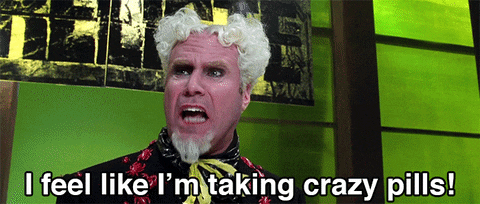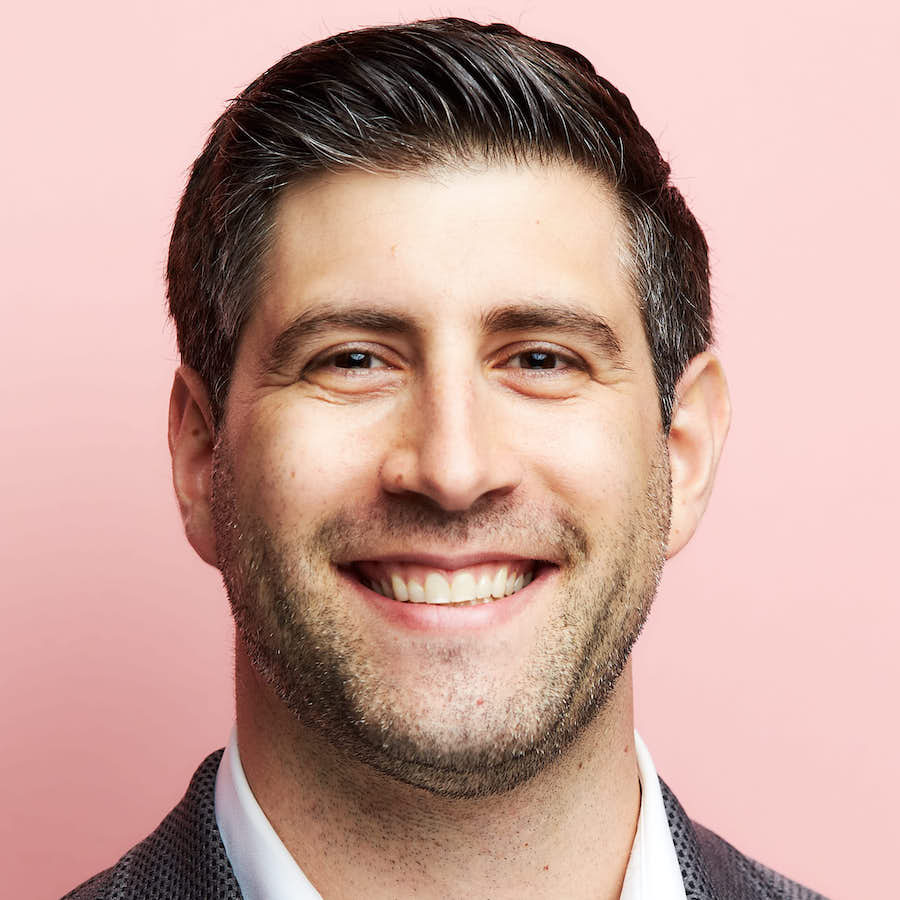“Brands Face 3 Core Podcasting Challenges” — Casted Is Now a Presenting Sponsor of Marketing Showrunners
Let’s talk about mint chocolate chip cookies for a second. (Stay with me, people. It’s gonna get weirder before it gets normal again.)
Say you are utterly convinced that a mint chocolate chip cookie is the greatest cookie on the planet. It might not be for everyone, but the people who like it really freaking like it. The problem isn’t finding others who see a need for MCC cookies. (That’s what we call those tasty treats, obviously.)
No, the problem isn’t the demand. The problem is supply. Sure, there are plenty of ingredients out there, but it’s hard to find one that’s specifically tailored to what we want to make. So you hit the town in search of some sweet mint chips, wandering around aisle after aisle, store after store, seeing option after option that’s just not quite right — candy canes, Andes chocolates, raw mint. Fine, we could use that. But it’s not perfect. “THESE SHOULD EXIST!” you think.

But then, right as you’re about to give up, you find them: THE ingredient you need for this specific dessert.
That’s Casted.
The First Podcasting Platform for B2B Marketers
As we’ve covered previously, Casted is the world’s first podcasting technology built specifically for B2B marketers. In my travels around the podcasting industry over the past 6 years, I’ve found very many tech vendors, all of whom cater to a wide range of people, ranging from hobbyists to media outlets. Yet seemingly none of them tailor what they do to marketers specifically. If you’re utterly convinced that a podcast is right for your brand (and more and more marketing executives feel that way), then your search for tools tailored to your needs would have felt an awful lot like the plight of MCC cookie fans. You’d find plenty of solutions out there, but it would be hard to find one specifically tailored to what we are making as marketers. Review site after review site, blog post after blog post, you’d find hosting tools and audio clipping tools, crude forms of measuring vanity metrics, and “growth” tools built for those who sell ads. Nothing for us marketers. Not exactly.
“THIS SHOULD EXIST!” you’d think.
As of the summer of 2019, it does with Casted.
According to research by the Content Marketing Institute and MarketingProfs, B2B and enterprise brands are investing more in creating audio content in 2019 than their B2C counterparts. This makes sense, when you consider how much B2B content marketing focuses on teaching others, talking with industry experts, or featuring guests from prospective customer organizations — all common use cases for podcasts.
In my experience in this niche (6 years, 10+ branded shows, 500+ episodes hosted or produced), I’ve discovered that the technology available either feels stuck in the past or focuses entirely on the back-end hosting and uploading of your show. (The world simply doesn’t need another platform to generate your RSS feed and distribute to Apple, Spotify, et al. More than 20 exist. With a few exceptions we’ll cover on this site soon, they’re identical.)
Elsewhere, it doesn’t get much more customized to marketers. After choosing to host your show on, say, Simplecast, Libsyn, or Transistor, you might clip your “audiograms” from the listening experience inside Overcast, check listener dropoff rates in Apple Podcasts, and create transcriptions with Rev. It all feels reminiscent of digital marketing circa 2010: fragmented, fine, or not focused on brands specifically.
In the case of Casted’s technology, as with my beloved MCC cookies, it might not be for everyone, but the people who like it really freaking like it. Those people are, of course, marketing showrunners. Casted is invested in more marketers making more and better shows. Our movement is their movement. They don’t want to capture a larger slice of an existing pie. They want to grow the pie together with us. (Pies, cookies — I think I forgot to eat lunch again…)
Casted’s Role in the Marketing Showrunners Movement
The first time I talked to Casted cofounder and CEO, Lindsay Tjepkema, I found myself nodding so hard I needed a neck brace. Here are just a few things she told me (paraphrased)…
- Marketers need to get better at holding attention, not just grabbing it. Shows are the world’s best vehicle for doing that.
- Marketers face a set of problems that are unique to their podcasts compared to traditional media. The sizes and organizations of their teams, the complexity of what we’re trying to do and measure, and the business models of B2B brands make us different from side project shows and media outlets.
- Podcasts can’t be side projects for brands if they’re going to succeed. They have to be central to the entire strategy.
- If we want to measure the success of a show, we have to go beyond downloads. If we’ve hosted a show, we know it, we can feel it, and we get amazing, emotional feedback from listeners. But we need better ways to prove the value around our companies.
Most notably, as MSR covered in a previous piece about Casted’s recent launch, Lindsay breaks apart the core needs of marketers running shows into three rather painful, rather well-articulated problems:
First, there’s the inaccessibility of all that rich, reusable, repurpose-able content bottled up inside a podcast.
Unlike when we as marketers raid an ebook for blog posts or mine a few blog posts for plenty of social media content, a podcast episode’s content is often “hidden.” It’s harder to unlock what should be a cascade of useful material for use across marketing channels and, therefore, teammates. A show should provide endless marketing efficiencies across the team, but it instead often feels like a side project that, every so often, we tell people to explore on an app we don’t own (Apple Podcasts, Spotify, et al).
Second, marketers need a better way to equip sales teams with content from the podcast.
Podcasts are just about the most intimate, conversation-rich type of content marketers create. Great sales teams also seek to establish that kind of relationship. Podcasts are “trust accelerants,” as passionate listeners come to feel they know the people behind the podcast. Sales teams also seek to earn trust quickly. But no salesperson in their right mind would scan every 30-minute episode, think about the best way to use periodic moments in the show, and then ask prospects to open a third-party app (or download one), find the show, find the episode, and finally scroll to the exact moment they want to share. Ugh. Rough times ahead.
Third, marketers face a challenge with their shows that likely feels familiar across any project: proof.
Can we make the case internally before launching? Can we make the case that it’s working for us after launching? We need a far more granular look at the show than what the typical, non-marketing-focused tech platform provides us. We don’t sell ads. We don’t care about downloads or other vanity metrics. We care about impact. We care about who stick around and become loyal brand advocates. Casted’s team believes what we do: Shows increase the lifetime value of a brand’s audience, and they help lower customer acquisition costs thanks to word-of-mouth.
Lindsay and her team at Casted just plain “get it.” That’s why today, officially, after a month working behind the scenes, I’m thrilled to welcome them as a presenting sponsor of MSR. They join our previously announced presenting sponsor, the video software company Wistia. The two of them together make up two of the more creative, forward-thinking organizations — and nicest people in business. Both their way of thinking and general great-human-ness are distinct competitive advantages if you ask me. (And you didn’t, but I’m telling you anyway.)
Casted & MSR: A Match Made in Podcasting Heaven
Beyond the usual logos, links, and announcements like these, Casted and MSR will find ways to grow the size of the pie together — more marketers making more and better shows. This might involve stuff like…
- Collaborating on larger-scale content projects, like original research, webinars, live videos, books, and events.
- Accessing data and insights in a way not previously available to MSR.
- Jointly crafting and aligning around shared terminology and methodologies, so we can better inspire marketers everywhere to approach shows with a more strategic, coherent, and creative lens.
- Skipping gaily through the park. Late night pizza runs. Sipping the same oversized tropical drink through different straws while giggling to each other. You get the idea: We’re BFFs already.
What I’m trying to say is: Casted, like few brands, is the perfect partner for MSR. Lightning struck when we partnered with Wistia, and now, improbably, a second time with Casted.
Casted isn’t a logo appearing on the site every so often. They’re a partner. We’re standing shoulder to shoulder, watching the marketing world unfold, trying to play a major role in shaping it into something better, something more creative, something more focused on holding attention, not just grabbing it.
This movement of marketing showrunners is already happening. That much is clear. However, Casted’s team and ours both envision a world that doesn’t yet exist. We believe brands can create better experiences for customers. We believe that brand affinity and word-of-mouth can replace the bludgeoning and system-gaming that too many sales and marketing teams focus on. Above all, we believe that great marketing isn’t about who arrives. It’s about who stays.
As of today, officially, we can work toward that world together.

Founder of Marketing Showrunners, host of 3 Clips and other podcasts and docuseries about creativity, and author of Break the Wheel. I’m trying to create a world where people feel intrinsically motivated by their work. Previously in content marketing and digital strategy at Google and HubSpot and VP of brand and community at the VC firm NextView. I write, tinker, and speak on stages and into microphones for a living. It’s weird but wonderful.
Get in touch anytime: jay@mshowrunners.com // Speaking inquiries: speaking@unthinkablemedia.com

